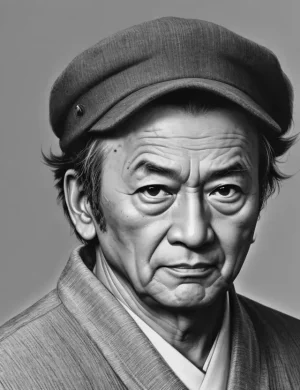Akira Kurosawa
Early Life and Career Beginnings
Akira Kurosawa was born on March 23, 1910, in Tokyo, Japan. He developed a passion for storytelling and cinema at a young age, studying painting before entering the film industry as an assistant director in the 1930s. Kurosawa's early works showcased his talent for visual storytelling and innovative narrative techniques.
Rise to Prominence
Kurosawa gained international recognition with films like 'Rashomon' (1950) and 'Seven Samurai' (1954), which established him as a master of Japanese cinema. His groundbreaking use of cinematography, editing, and narrative structure set new standards for filmmaking and inspired generations of filmmakers around the world.
Notable Works
Throughout his career, Akira Kurosawa directed a diverse range of acclaimed films, including 'Yojimbo' (1961), 'Sanjuro' (1962), and 'Kagemusha' (1980). His samurai epics, in particular, are celebrated for their epic scope, complex characters, and breathtaking action sequences.
Personal Life
Kurosawa was known for his dedication to his craft and his meticulous attention to detail. He was deeply influenced by Japanese culture and history, drawing inspiration from traditional art forms like Noh theater and Kabuki. Despite facing challenges and setbacks throughout his career, Kurosawa remained committed to his artistic vision and continued to create masterful works of cinema until his passing.
Legacy and Impact
Akira Kurosawa's impact on the world of cinema is immeasurable. His films have not only entertained audiences around the world but also challenged conventions and expanded the possibilities of cinematic storytelling. Kurosawa's enduring legacy continues to inspire filmmakers and cinephiles alike, ensuring that his contributions to Japanese cinema will never be forgotten.
